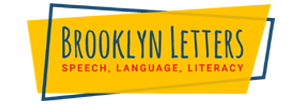
Articulation & Verbal Expression
Speech development is incredibly complex and commonly misunderstood even among speech therapists! Our perspective on speech development is heavily influenced from peer reviewed journals: professors who study speech development. We also offer language therapy (early childhood and school age), which is different than speech therapy. When we setup an initial consultation and/or evaluation, we will assess your child's speech and language skills. Our analysis will target where your child is having difficulty with their speech and language development. Pinpointing the underlying difficulties is critical for effective treatment.
*Sarah and Jocelyn are experienced to work with children with repaired cleft lip/palate.
*Suzanne and Jocelyn are bilingual speech language therapists and they offer Spanish and French bilingual services.
TODDLER
Speech sound development is strongly tied to the child’s expressive language abilities and toddlers who are hard to understand can be unintelligible for many reasons.
A delay in expressive vocabulary and a delay in stringing words together is usually accompanied by a delay in sound acquisition and decreased speech intelligibility. Therapy typically focuses on increasing the child’s expressive vocabulary and helping the child increase the complexity of what they say. As the child’s vocabulary expands, the number and variety of sounds increases, and the toddler is more understood.
For toddlers with a limited sound repertoire, we teach early developing sounds to start building the foundation for learning words.
Some toddlers are talkative but they are hard to understand. They may need help acquiring
early developing sounds and/or eliminating atypical sound errors.
Some toddlers can say a lot of words and they are well understood, but they need help using their words in the right environment. Here, the therapy focuses on social language use.
PRESCHOOLER
Therapy may focus on increasing the child’s vocabulary and complexity of what they say, facilitating their underlying speech development.
Some preschoolers need help learning age-appropriate sounds and/or reducing speech error patterns, e.g. child says “tiss,” for “kiss” even though the child can say the “k” sound.
Some preschoolers can say a lot of words and they are well understood, but they need help using their words in the right environment. Here, the therapy focuses on social language use.
SCHOOL AGE
Therapy typically focuses on teaching later developing sounds, e.g. “th,” “l,” and “r,” reducing sound distortions, e.g. lisp, and resolving any remaining speech error pattern(s) not exhibited by peers.
